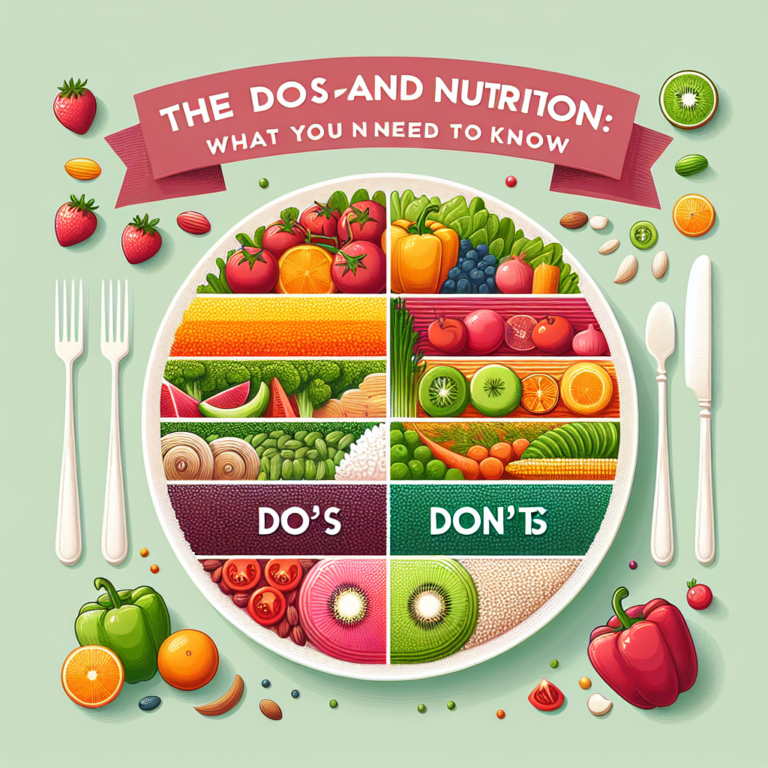Nutrition plays a crucial role in our overall health and well-being. It directly impacts our energy levels, mood, and even our risk for chronic diseases. With so much information out there about what we should and shouldn’t eat, it can be overwhelming to know where to start. To help you navigate the world of nutrition, here are the dos and don’ts that you need to know.
DO: Focus on whole, unprocessed foods
One of the most important things you can do for your health is to focus on eating whole, unprocessed foods. These foods are rich in nutrients and are not filled with added sugars, unhealthy fats, and preservatives. Examples of whole foods include fruits, vegetables, whole grains, lean proteins, and healthy fats.
DON’T: Rely on processed foods
Processed foods are often high in unhealthy fats, sugars, and additives that can have negative effects on our health. These foods are usually low in nutrients and can lead to weight gain, inflammation, and other health issues. Try to limit your intake of processed foods and opt for whole foods whenever possible.
DO: Eat a variety of foods
Eating a variety of foods ensures that you are getting a wide range of nutrients that your body needs to function properly. Different foods contain different vitamins, minerals, and antioxidants that are essential for your health. Eating a diverse diet also helps to prevent boredom with your meals and ensures that you are getting a balanced intake of nutrients.
DON’T: Skip meals or go on extreme diets
Skipping meals or going on extreme diets can have negative effects on your metabolism and overall health. It can lead to nutrient deficiencies, low energy levels, and can even slow down your weight loss efforts. Instead of focusing on restrictive diets, aim to eat balanced meals throughout the day that include a mix of carbohydrates, protein, and healthy fats.
DO: Stay hydrated
Drinking an adequate amount of water is essential for your overall health. Water helps to regulate your body temperature, aids in digestion, and helps to flush out toxins from your body. Aim to drink at least 8-10 glasses of water per day, and more if you are active or live in a hot climate.
DON’T: Drink sugary beverages
Sugary beverages like soda, juice, and energy drinks can add a significant amount of empty calories to your diet without providing any nutritional benefits. These drinks can lead to weight gain, tooth decay, and can also increase your risk for chronic diseases like diabetes and heart disease. Opt for water, herbal tea, or unsweetened beverages instead.
By following these dos and don’ts of nutrition, you can improve your health and well-being. Remember to focus on whole, unprocessed foods, eat a variety of foods, stay hydrated, and avoid processed and sugary foods. Making these simple changes to your diet can have a big impact on your overall health in the long run.
